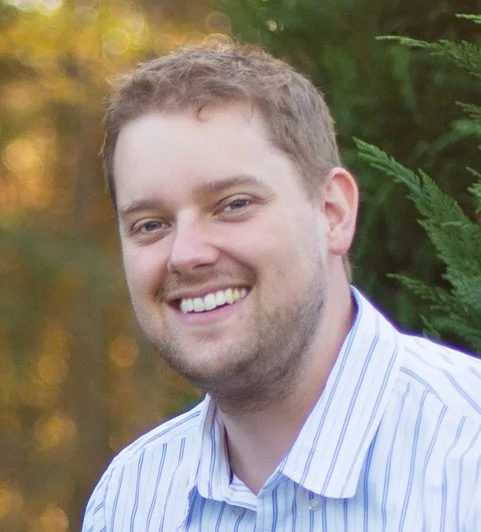Eliot Bostar is a Nebraska state senator. Born in New York, Bostar graduated from St. John's Northwestern Military Academy in 2005 and earned a Bachelor of Science in Business from Embry-Riddle Aeronautical University in 2012.
Read MoreAndrew Burleson has served as Chairman of the Board for Strong Towns since 2014. Andrew’s professional work has spanned several fields, from newspaper publishing and urban planning to real estate and financial technology. Before Strong Towns, Andrew founded the Houston chapter of the Congress for the New Urbanism in 2009, and he met Chuck Marohn through CNU. Andrew has been a key advocate for Strong Towns’ evolution from an engineering-centric blog to a broader, movement-building organization. Andrew lives in Denver, Colorado, with his wife and four children.
Read MoreLeVette Fuller represents District B in the Shreveport City Council. She is also a founding member of Re:Form Shreveport, an organization dedicated to bringing citizens together to share ideas and find implementable solutions to improve Shreveport’s built environment.
Read MoreGregory is a passionate urbanist and real estate professional with over 10 years of experience in community and economic development in the city of Newark and its environs, serving as senior development officer. Previously, Gregory was the economic development manager for the city of East Orange, where he first discovered Strong Towns. Gregory also founded and is currently the executive director of Urban Exposure, a youth athletics program. Gregory serves as board chair for the Greater Newark Convention and Visitor’s Bureau and as commissioner on the Newark Central Planning Board. He is a graduate of The Lawrenceville School and earned a bachelor’s degree in political science from the University of Delaware and a master’s degree in public administration from Rutgers University. Gregory lives in Newark, New Jersey, with his wife and four children.
Read MoreGracen creates educational tools and experiences that help regular people build places and livelihoods that fill them with pride. She is a cofounder and director of design with the Incremental Development Alliance, a nonprofit that trains locals to construct or repair the essentials of a strong neighborhood. Before that, Gracen designed and managed the Summer Institute, an entrepreneurship accelerator for place-based businesses. Gracen earned a Master of Planning, Growth, and Regeneration from the University of Cambridge in 2013. She has been writing for Strong Towns for many years.
Read MoreChitra Kumar is a public policy and planning expert at the U.S. Environmental Protection Agency. Throughout her 17-year federal career, she has held various roles creating partnerships with federal, state and local organizations to develop more equitable strategies for environmental protection, land use and infrastructure, particularly in economically distressed small towns, rural areas and urban neighborhoods.
Currently, she is serving as the acting associate director of EPA’s Office of Environmental Justice. From March 2020 to 2021 Ms. Kumar was a senior fellow with the Aspen Institute’s Community Strategies Group and Thrive Rural. A second-generation immigrant to the rural Midwest, Chitra is particularly interested in advancing equity, environmental sustainability and economic resilience while highlighting immigrants’ contributions to the American economy. Chitra holds a Master in City Planning from the Massachusetts Institute of Technology and a Bachelor of Arts from Boston University.
Read MoreMichele served for 12 years as a council member in the city of Santa Ana, CA (2006-18). During this time, she became the first council member to serve as president of the National Association of Latino Elected and Appointed Officials (NALEO), the first council member to serve as president of the Southern California Association of Governments (SCAG), and the youngest woman to serve as the mayor pro tem for the city of Santa Ana.
Since leaving public office, Michele has been volunteering her time by serving as a pro-bono policy advisor for U.S. District Judge David O. Carter on the issue of homelessness for North and Central Orange County. Furthermore, Michele was recently appointed by U.S. District Judge David O. Carter to serve as a special master on the issues of homelessness, and the specific lawsuit by the Alliance for Human Rights against the City and County of Los Angeles regarding homelessness. Recently Michele was appointed by Governor Gavin Newsom to the California Transportation Commission.
Read MoreJoe Minicozzi is an urban planner who imagines new ways to think about and visualize land use, urban design and economics. Joe founded Urban3 to explain and visualize market dynamics created by tax and land use policies. Urban3's work establishes new conversations across multiple professional sectors, policy makers and the public to creatively address the challenges of urbanization. Urban3's extensive studies have ranged geographically from over 30 states, as well as Canada, Australia and New Zealand.
Joe holds a Bachelor of Architecture from the University of Miami and a Master of Architecture and Urban Design from Harvard University. In 2017, Joe was recognized as one of the 100 Most Influential Urbanists of all time.
Read MoreSteve Mouzon is an architect, urbanist, author, blogger and photographer from Miami. He founded the New Urban Guild, which helped foster the Katrina Cottages movement. The Guild hosts Project:SmartDwelling, which works to redefine the house to be much smaller and more sustainable. Steve founded and is a board member of the Guild Foundation, which hosts the Original Green initiative. Steve speaks regularly across the U.S. and abroad on sustainability issues. He blogs at Original Green Blog. His Original Green Twitter stream is @stevemouzon.
Read MoreGrace Olmstead is a journalist and author of “Uprooted: Recovering the Legacy of the Places We've Left Behind.” Her writing has been published in The American Conservative, The New York Times, The Washington Post, The Wall Street Journal, and others. You can connect with Olmstead on Twitter and through her monthly newsletter.
Read MoreA graduate of The King's College and former journalist, Tiffany Owens Reed is a New Yorker at heart, currently living in Texas. In addition to writing for Strong Towns and freelancing as a project manager, she reads, writes, and curates content for Cities Decoded, an educational platform designed to help ordinary people understand cities. Explore free resources here and follow her on Instagram @citiesdecoded.
Read MoreIan Rasmussen is a zoning attorney and urbanist. He currently serves on the board of directors for Strong Towns. Since discovering urbanism, he has focused his academic and professional efforts on its advancement. After graduating from Brooklyn Law School in 2008, Ian practiced zoning law in New York City for five years before transitioning full-time to the firm he founded, Urban Cartographics. These roles have offered a unique perspective on the land use process that continues to inform his views and work with urbanism, as well as continuing to provide an opportunity for him to fight for the creation of worthwhile places that are foolishly prohibited by the existing regulatory framework. He resides in Port Washington, New York, with his wife Erika and daughter Olive.
Read MoreJohn Reuter has spent much of his life working and living in the West. Born into a Greek sheep-ranching family, he grew up in a small logging town in Oregon, went to school at the College of Idaho and now lives in Boston. While in college, he cofounded the Sandpoint Reader, a weekly arts and entertainment newspaper, and later freelanced for regional and national publications, including the Washington Post. He continues to write a monthly column for the Spokane Inlander. In 2007, he was appointed and then elected to be the youngest city council member in Sandpoint, Idaho’s history and then selected by his peers to be council president. John serves on the board of directors for Strong Towns and is a Strong Towns fellow. He's particularly drawn to the notion that economic development is a community endeavor not just belonging to the planners.
Read More












